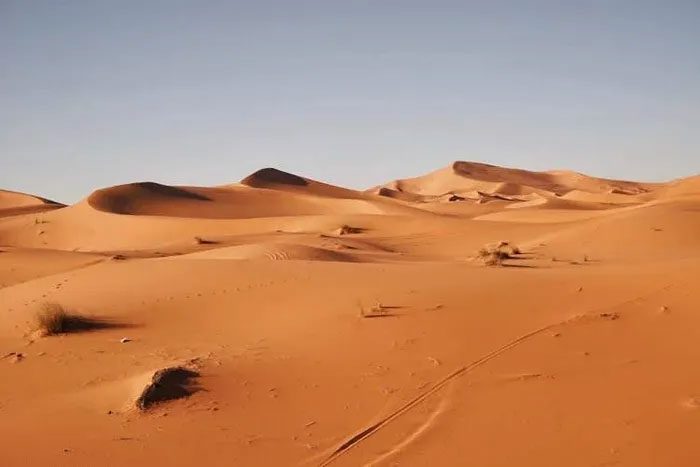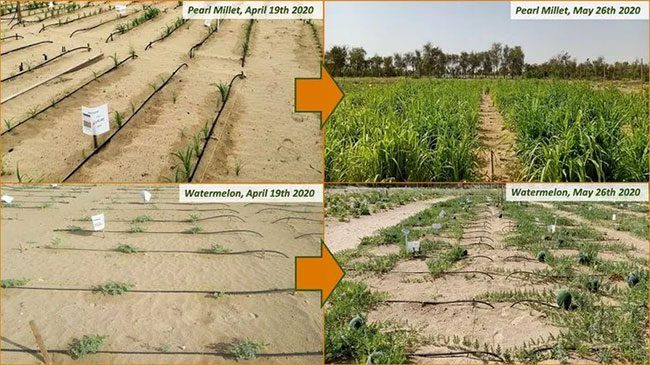Norwegian startup Desert Control has found an effective solution to combat desertification by mixing sand with liquid nano clay (LNC).
According to Oddity Central, for decades, the world has celebrated many “green heroes” fighting against desertification, applying various techniques from wind-resistant shrubs to creating tree barriers to prevent wind erosion. However, a startup now claims to have achieved much better results thanks to new technology under the same harsh conditions, taking only 7 hours.

When mixed with sand, the LNC soil mixture will soak into the sand, becoming an effective water-retaining soil. (Illustrative image: Unplash)
Invented in the early 2000s by Norwegian scientist Kristian Olesen, liquid nano clay is the secret behind Desert Control’s remarkable achievements. When mixed with sand, the LNC soil mixture penetrates the sand, transforming into an effective water-retaining soil that allows plants to germinate and thrive.
For thousands of years, farmers around the world have used clay to enhance soil fertility. Among them, the Nile Delta is famous for its fertility thanks to clay. However, creating thick, heavy, less fertile clay has always been labor-intensive and time-consuming. Desert Control has overcome this barrier by reducing the number of clay particles in the liquid nano clay mixture.
Liquid nano clay may sound strange, but it is created using only water and clay. The company’s secret lies in its ability to transform thick clay into a liquid that is “thin as water”, which is then sprayed onto the sand, soaking into the top layer up to several dozen centimeters. From there, the clay binds with the sand particles, forming a moisture-retaining soil that, while not as fertile as dark soil, can certainly support plant growth.

Clay binds with sand particles to create a moisture-retaining soil. (Image: Facebook).
Desert Control is currently targeting the United Arab Emirates (UAE), a wealthy market that has to import up to 90% of its food due to the challenges of farming in a desert environment. The new technology has proven to be remarkably effective, transforming barren desert land into fertile soil.
However, this promising solution still has cost limitations. CNN reports that implementation costs range from $2 to $5 per square meter. Considering the vast areas that need to be treated with liquid nano clay, this is not cheap. Nevertheless, Desert Control plans to develop facilities capable of producing large quantities of liquid nano clay, which will significantly reduce costs.
Ismahane Elouafi, Director General of the International Center for Biosaline Agriculture in Dubai, stated: “If this company can lower prices and adjust its strategy to suit the lowest-income countries, this solution could have a truly significant impact on food security and agricultural capability. The benefits could be enormous.”
With 12 million hectares of fertile land being desertified each year, Desert Control’s solution seems nothing short of miraculous. But the ability to turn sand into arable land in just 7 hours is an astonishing breakthrough. According to Desert Control, the effects of liquid nano clay will last for about 5 years, after which this artificial soil needs to be regenerated.



















































